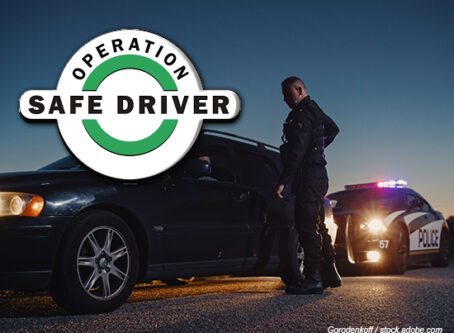California, Delaware lawmakers advance limitations on autonomous trucks
Legislation in two states on opposite sides of the country that addresses autonomous trucks is nearing the finish line.
The Owner-Operator Independent Drivers Association recognizes the potential for the rapid development of autonomous technology. However, OOIDA has highlighted that the technology poses challenges as it relates to commercial vehicles and highway safety.
California
One year after being vetoed, a renewed effort at the California statehouse continues to move forward to address concerns about autonomous trucks.
The Senate Transportation Committee voted 11-1 on Tuesday, June 25 to advance a bill that would prohibit autonomous vehicle operation with a gross vehicle weight of at least 10,001 pounds for testing purposes, transporting goods or transporting passengers without a “human safety operator physically present” in the vehicle during operation.
The bill’s next stop is the Senate Appropriations Committee. Assembly lawmakers already approved AB2286 by a veto-proof 63-4 margin.
State lawmakers sent the same bill to Gov. Gavin Newsom a year ago. The legislative action followed an initial public workshop in January 2023 by the California Department of Motor Vehicles to consider a new regulatory process to authorize the testing and deployment of autonomous vehicles exceeding 10,000 pounds.
Newsom rejected the legislation. He said regulation and oversight of the heavy-duty autonomous vehicle technology in the state was “unnecessary.” In his veto message, he referred to state law that provides the DMV with authority to regulate the testing and deployment of autonomous vehicles on state roadways.
Assembly Bill 2286
During this week’s committee hearing, Assemblymember Cecilia Aguiar-Curry, D-Winters, reiterated her bill does not prevent operation of autonomous trucks in the state. She pointed out “There is nothing about a human safety operator that prevents the autonomous trucking industry from testing and deploying autonomous vehicles anywhere in California.”
She added that “the only conceivable motivation for rushing forward without a monitor in the cab is to increase profits at the risk of public safety and the livelihoods of our trained, expert trucking workforce.”
The Autonomous Vehicle Industry Association has complained the legislation takes the “draconian step” of upsetting the state’s regulatory process.
Delaware
At the Delaware statehouse, a bill is nearing passage that also covers testing autonomous trucks without a human safety operator.
On Wednesday, the House Public Safety and Homeland Security Committee voted to advance a bill that would prohibit the operation of an autonomous truck with a gross weight exceeding 10,000 pounds from operating on a state highway. The rule would apply for testing purposes, transporting goods or transporting passengers without a human safety operator physically present in the vehicle.
The Delaware Department of Transportation also would be responsible for submitting a report evaluating autonomous vehicle technology to the governor by 2029. At that point, the rule could be changed.
Sen. Spiros Mantzavinos, D-Newport, told lawmakers the rule is needed to address recent safety concerns around the country for autonomous passenger vehicles, including robo taxis.
“Let’s think about passenger vehicles versus tractor-trailers,” Mantzavinos said. “At this point in time, do we want to allow that on Delaware roads?”
Like the California bill, the Delaware bill would allow testing with a person behind the wheel.
The autonomous vehicle industry opposes the bill described as “preemptively and prematurely banning AV trucks in Delaware.” Bill critics add that autonomous trucks “will thrive alongside truck drivers to meet growing freight demands and supply chain challenges currently hurting Delaware’s manufacturers, farmers and small businesses.”
The bill now moves to the full House. If approved there, SB258 would head to the governor’s desk. Senate lawmakers already approved the bill.
New York
In New York, a pair of bills that also cover the operation of autonomous trucks have been set aside until next year.
State law does not include a requirement for large vehicles to have a human in the cab capable of taking control of the vehicle in case of emergency.
A8621/S7758 would require operators to accompany trucks with autonomous technology while traveling the state’s roadways. The rule would apply to autonomous vehicles weighing more than 10,000 pounds.
Sen. Pete Harckham, D-Peekskill, has said the importance of the trucking industry requires that state lawmakers be proactive and vigilant about public safety and job security when it comes to technological innovations like autonomous vehicles.
“The trucking industry is the backbone to middle-class social mobility, but unfortunately, these good-paying jobs are under attack,” Harckham posted on X.
Each bill remained in its respective chamber’s transportation committee when the regular session ended for the year. The bills can be brought back for consideration when the 2025 session convenes. LL
More Land Line coverage of state news is available.









